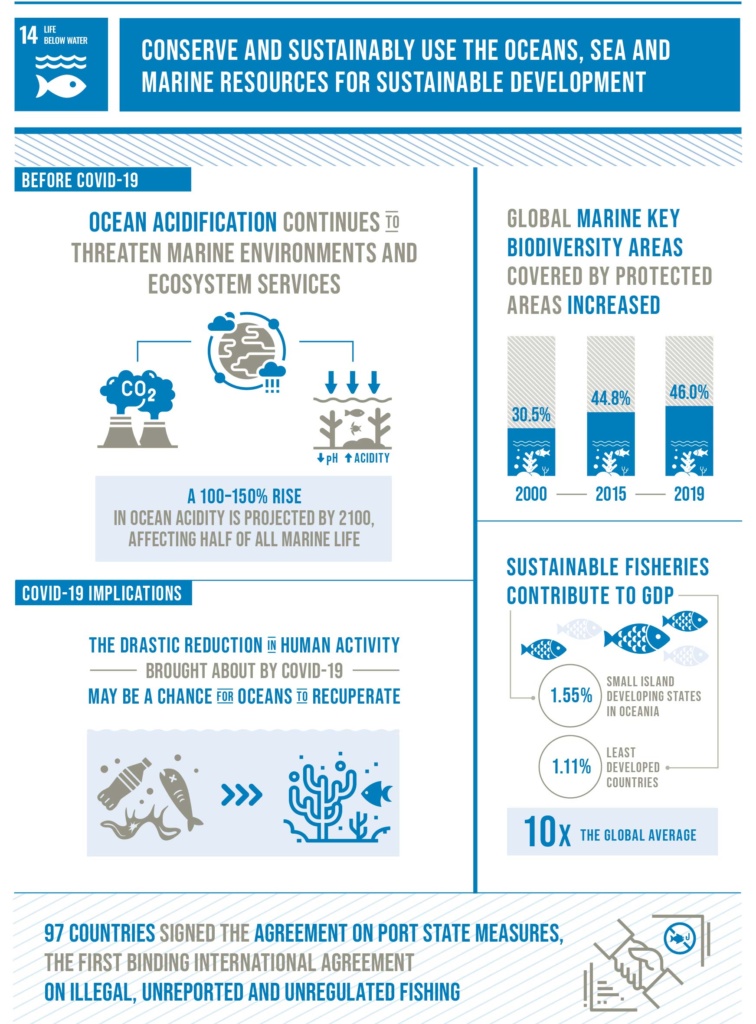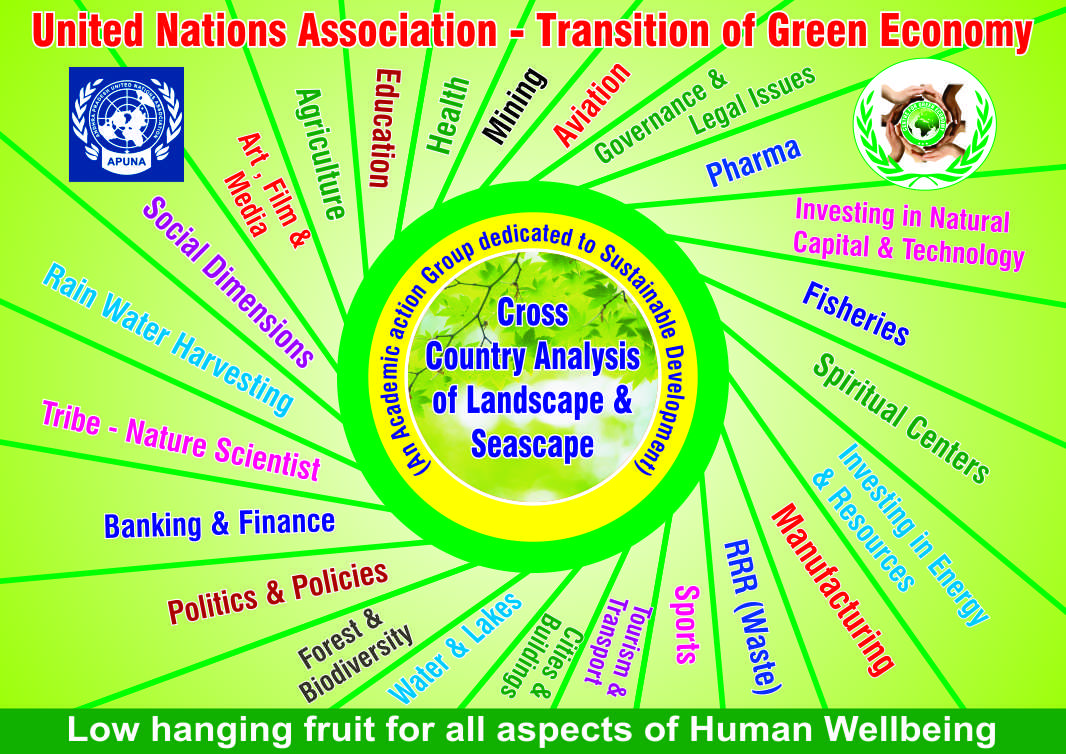Category: 24 Themes
Oceans
The ocean covers 70 percent of the Earth’s surface, is the planet’s largest biosphere, and is home to up to 80 percent of all life in the world. It generates 50 percent of the oxygen we need, absorbs 25 percent of all carbon dioxide emissions and captures 90 percent of the additional heat generated from those emissions. It is not just ‘the lungs of the planet’ but also its largest carbon sink – a vital buffer against the impacts of climate change.
It nurtures unimaginable biodiversity and produces food, jobs, mineral and energy resources needed for life on the planet to survive and thrive. There is a great deal we still do not know about the ocean but there are many reasons why we need to manage it sustainability – as set out in the targets of Sustainable Development Goal 14: Life Below Water.

The science is clear – the ocean is facing unprecedent threats as a result of human activities. Its health and ability to sustain life will only get worse as the world population grows and human activities increase. If we want to address some of the most defining issues of our time such as climate change, food insecurity, diseases and pandemics, diminishing biodiversity, economic inequality and even conflicts and strife, we must act now to protect the state of our ocean.


